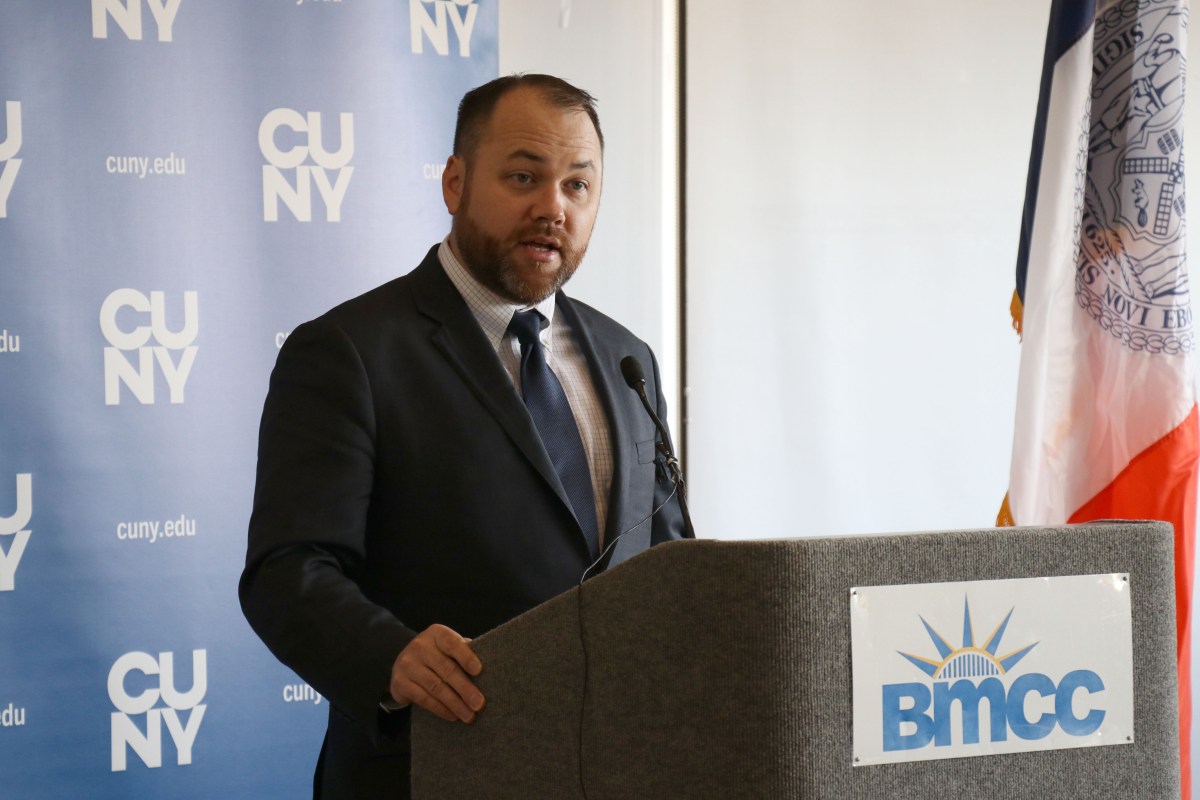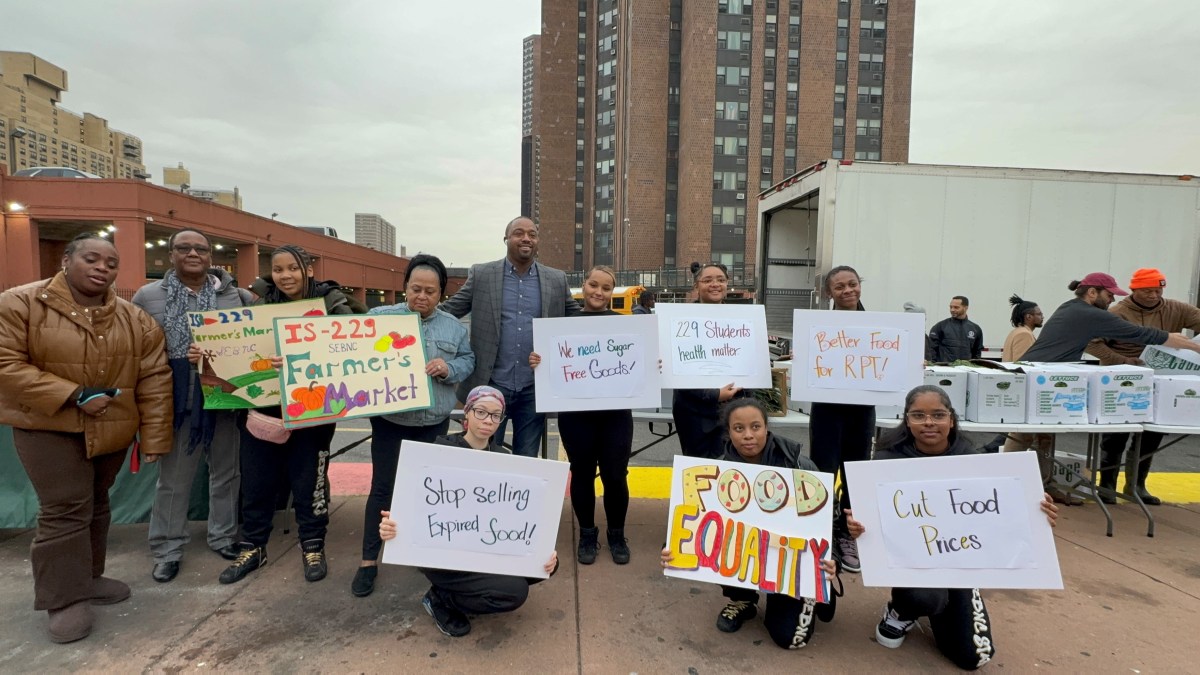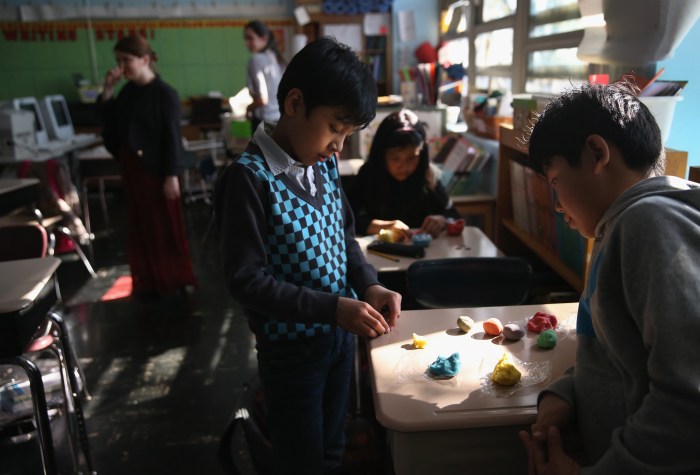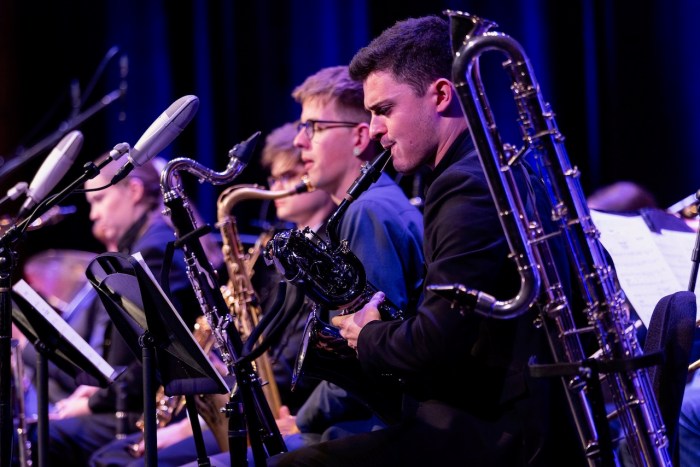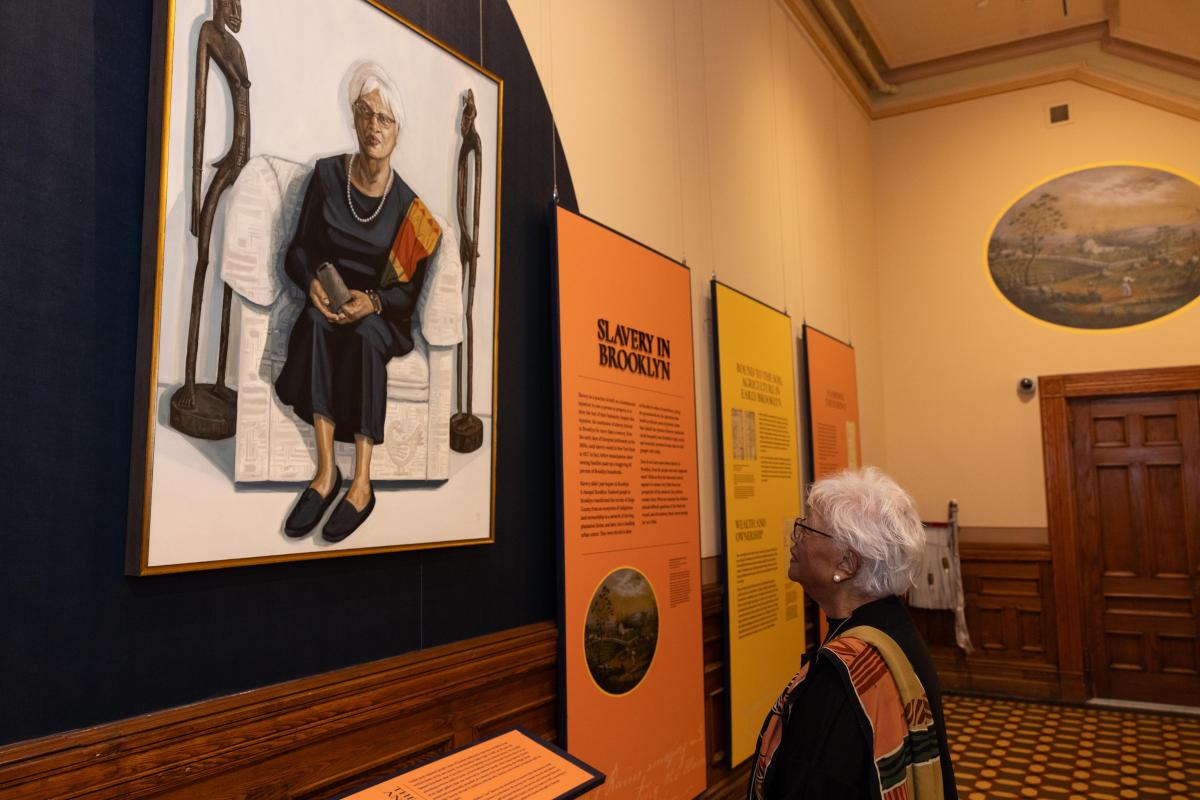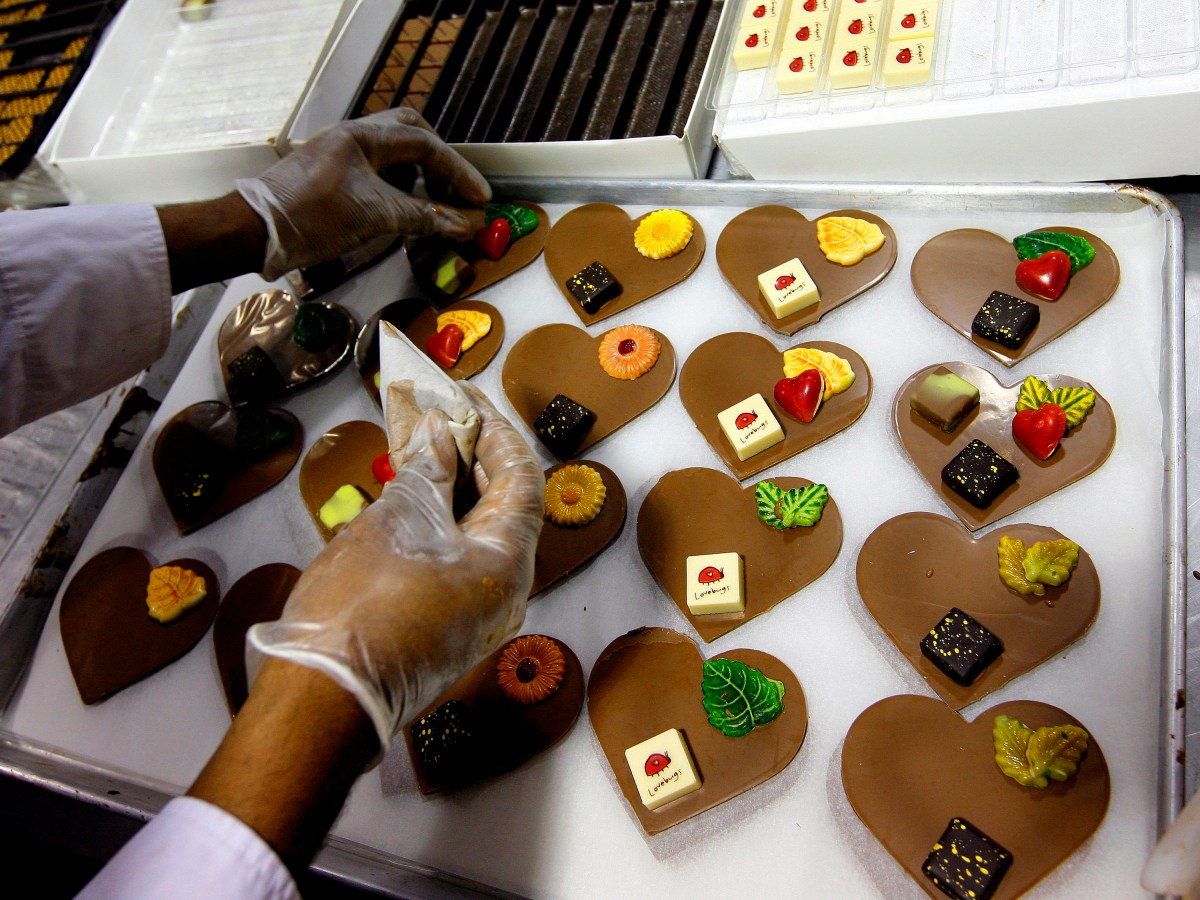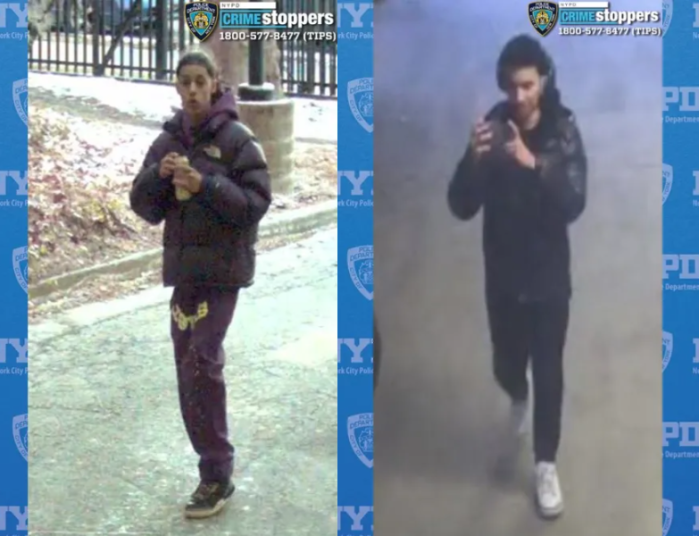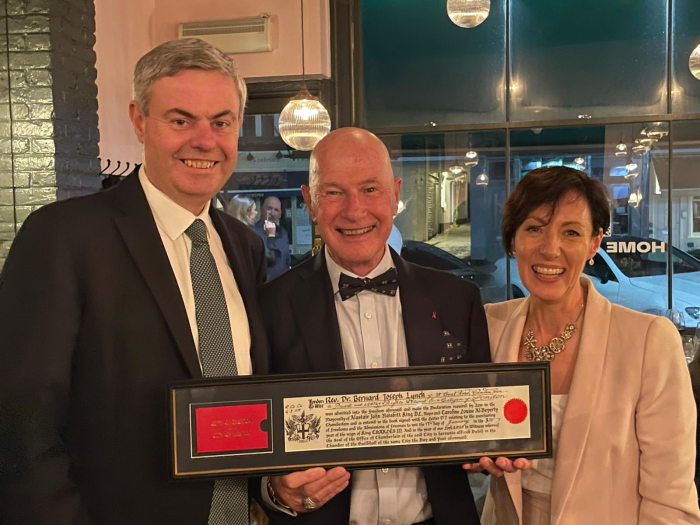About 50 percent of students at Borough of Manhattan Community College (BMCC) are food insecure, according to interim president Karrin Wilks — but she doubts the number is that low.
“These numbers are self-reported,” said Wilks, “which makes me believe that that it is actually higher.”
Wilks mentioned that troubling statistic shortly before City Council Speaker Corey Johnson and CUNY Chancellor Félix V. Matos Rodríguez announced a $1 million pilot program to address food insecurity among CUNY community college students, including those enrolled at BMCC. In August, Johnson announced plans to introduce a number of bills aimed at combating hunger in the city.
The program, which began at the beginning of this fall semester, makes select students eligible to receive $400 vouchers to use for any food item in campus cafeterias.
Recipients at the beginning of the semester and next spring will be selected from a pool of low-income students. The 1,250 qualifying students must be enrolled at a CUNY community college for at least nine credits, live in the five boroughs, are working towards their first college degree, show significant financial need, are not currently receiving SNAP benefits and maintain a satisfactory grade point average.
Student parents and students who completed at least 45 credits and first year students were given priority for the program this fall.
Most students had a average family income of $15,605.
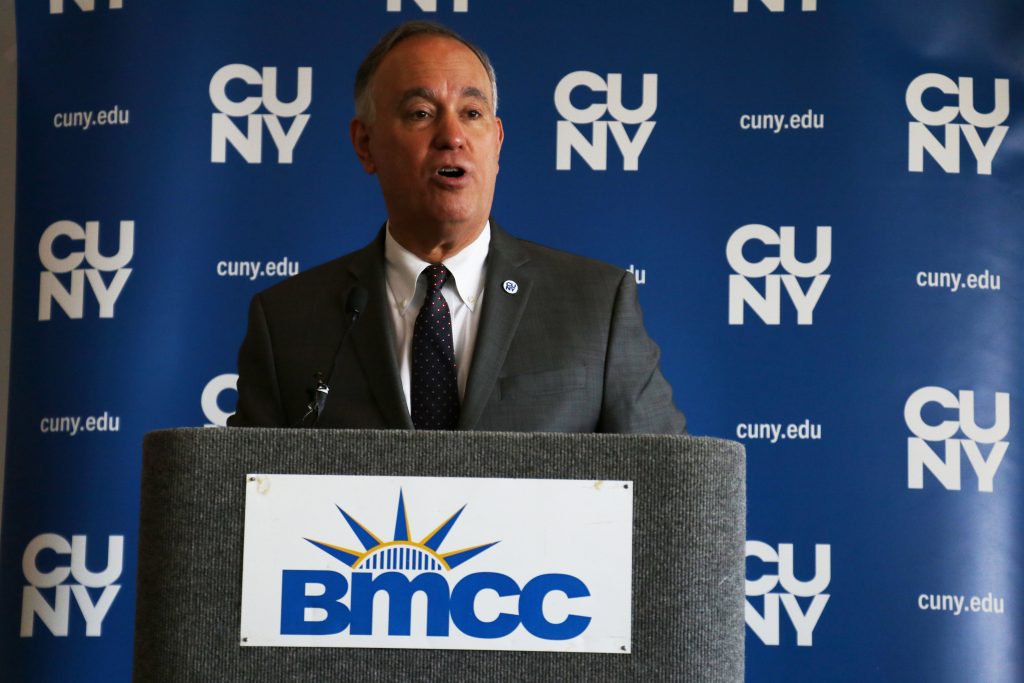
Rodríguez called the program a valuable addition to the CUNY’s already existing efforts to combat food insecurity, which include food pantries and a quarter-acre urban farm, on its campuses. Althouhg, the number of food insecure students went down by half between 2010 and 2015, CUNY continues to strive to end hunger completely.
“College student hunger is a serious problem in New York City,” said Johnson. “CUNY students should be focused on learning and studying, not where their next meal is coming from. We are one of the richest cities in the world but too many New Yorkers don’t have equitable access to healthy food.”
And as Brooklyn City Councilman Rafael Espinal put it, malnutrition perpetuates poverty.
About 20 percent of all CUNY students report being food insecure, according to 2018 data from CUNY’s Urban Food Policy Institute. But according to survey from the Hope Center for College, Community and Justice 48 percent of CUNY students reported being food insecure in the past 30 days. This closely mirrors the center’s national numbers. The center found that 45 percent of students from over 100 colleges and universities had been food insecure for past 30 days.
However, there is disagreement on the accuracy of these numbers. Researchers at the University of Illinois at Urbana-Champaign argue that current numbers are problematic and the institutions should use a variety of means to combat hunger on campuses.



